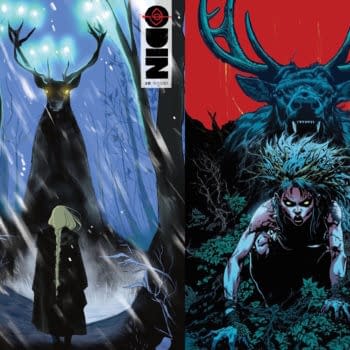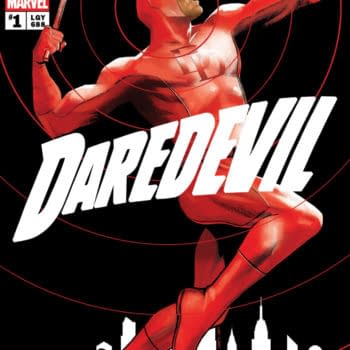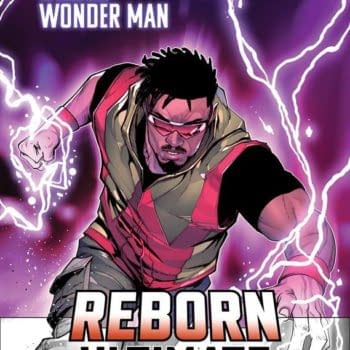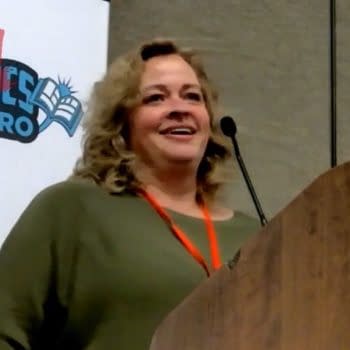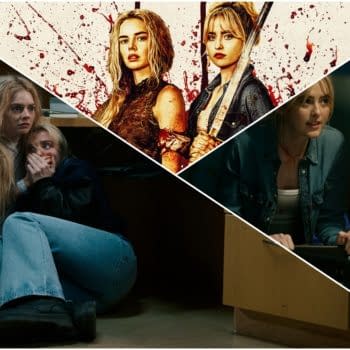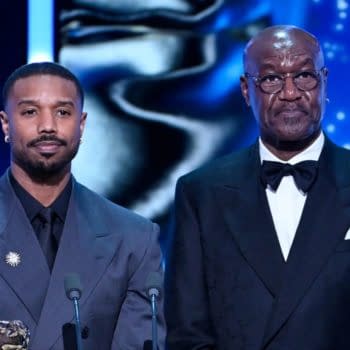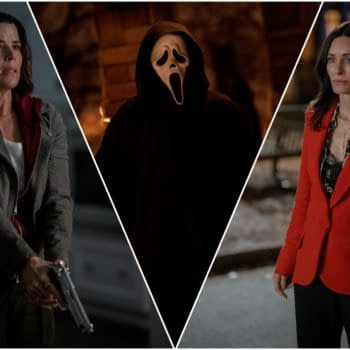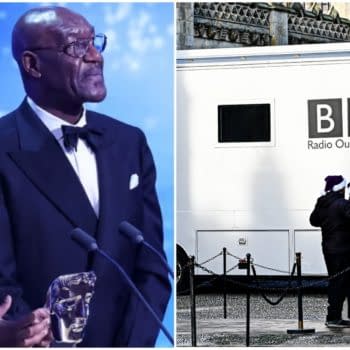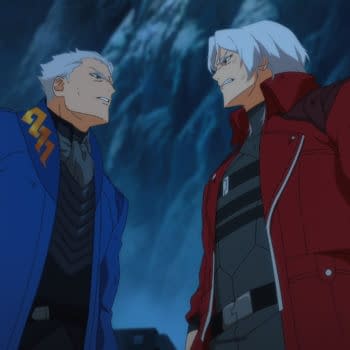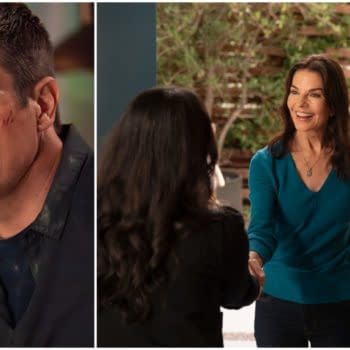Posted in: Movies, TV | Tagged: adi tantimedh, bbc, director, drama, entertainment, epic, John Dryden, radio, Tumanbay
Radio Drama Director John Dryden On The BBC's Epic Tumanbay – Look! It Moves! by Adi Tantimedh
Adi Tantimedh writes,
While radio and audio dramas are a lost art in the US slowly being rediscovered by certain pockets of the podcast world, the BBC and Europe never really stopped producing them for the radio for nearly 100 years now. John Dryden is the writer and producer of some of the most ambitious and innovative radio dramas for the BBC at the moment. He and his company Goldhawk Productions have adapted Rohinton Mistry's novel A Fine Balance, the medical thriller Pandemic and original crime drama Mumbai Undercover, often recording the cast on location in the stories' respective countries to capture the authentic atmosphere of those places rather than staying in a recording studio in London. These are the types of dramas the BBC has always been the world leader at producing.
Now comes what may be Goldhawk's most ambitious production: Tumanbay is an epic ten-part series set in the lesser-known Mamluk slave-dynasty of Egypt. It follows the Master of the Palace Guard charged with rooting out a rebellion insurgence and crushing it before it destroys the empire. The series deals with the alien mores of ancient dynastic politics while also drawin parallels with our own times, and falls into the current vogue in television for epic quasi-fantasy historical series like Game of Throne, Vikings, Rome, The Bastard Executioner and The Last Kingdom or even the terrible movie Exodus: Gods and Kings. If this were a movie or TV series, it would cost tens of millions of dollars or pounds, but on radio, a modest budget by TV and movie standards can go a very long way in evoking a huge epic vista of an ancient world, its sounds and battles.
I interviewed John Dryden on the making of the series and what drew him to it.
Adi Tantimedh: Of all the historical sagas to choose from, how did you decide to dramatise the story of TUMANBAY? Were there social and political parallels with the present, or the sharp contrasts between then and now that appealed to you as a storyteller?
John Dryden: I have spent time in Cairo and was fascinated by how much remains from this period. From the 13th – 16th century it was probably one of the most exciting place to be in the world, the richest most powerful city you could imagine. It was vast and it drew people from everywhere – the best artists in the world, the richest merchants of every race and religion. It was a happening place. But also quite a terrifying place under the Mamluk rulers. They came as slave soldiers, imported as boys into the Islamic Empire from the pagan Steppes, but they became its rulers and its saviors, defeating the Mongols from the east as well as the Christian Crusaders from the west. They became the greatest body of fighting men in the world, known for their skill with the bow, lance and sword and developed a martial code similar to the knights of the West. There are a lot of parallels with the present: they had problems with air pollution as early as 11th century Cairo; and traffic was a problem. But I'd be lying if I said Tumanbay is an historical drama. We wanted to find a world that was removed enough from the present, so that we could explore ideas and themes relevant to today. It's largely an invented world.
AT: Can you walk us through the process of pitching a radio drama serial like this through the BBC?
JD: The main thrust of our pitch was that we wanted to make a historical drama that didn't sound like we expect an historical drama to sound like. We wanted it to be fast-paced and have a contemporary vibe. Beyond that I pitched to the commissioning editor a few of the main characters – the merciless spy-catcher, Gregor who would do the most atrocious things and yet still find a place in the audience's heart, the fourteen-year-old daughter of a slave merchant coming by ship to join her father in Tumanbay and her abduction by one of her father's slaves. I also pitched the opening scene of the severed head of the sultan's fiercest ally being flung across the floor in front of him, and it was commissioned on the basis of that. I have written quite a lot of shorter series for the BBC, but nothing on this scale so it was quite a surprise to get it commissioned so quickly. I think it was the approach we proposed that was appealing: we weren't going to make it in a recording studio, but in "real" rooms and spaces and have, lots of movement and action and the microphones following the action. This approach gives it a lot of energy.
The process of pitching to the BBC? If you're a writer you need a producer who can help you. If your a producer, you need to have made something. If you haven't, you need to find a company which has and which can nurture your talents.
AT: So how long did the whole ten parts take to record?
JD: We recorded over a period of four weeks, everything out of order because we didn't have all the actors all the time. The schedule was a very complicated thing. The entire production lasted about four months – a month of casting and scheduling, a month of recording and two months of editing. And the writing – we started story-lining in November last year and finished the final draft scripts in August. But we did have a few other projects to work on over this period too – like Undercover Mumbai.
AT: Your productions are some of the most ambitious radio drama productions out there. You often record on location like in the Undercover Mumbai series. Some of the actors have described a more visceral process where they actually wore costumes and moves about rather than stand at a microphone. Can you elaborate on that?
JD: Yes, we try to do it all for real – all the movement, the walking, the sitting down, the fights. We don't exactly have everyone in costume, but wearing the right sort of thing is important – for instance shoes ands armour. We had a lot of props for the production too. I'm not saying it all translates into sound, but the performances are just better when you do it this way. It's such an authentic and exciting way to work. You can hear the energy in the performances.
By having the world only loosely based on the Mamluks but keeping it a largely invented world with for instance a non-specific religion, we were able to deal with some very contemporary issues like religious extremism.
Tumanbay begins on BBC Radio 4 this Wednesday. The entire series can be streamed after broadcast and also available to download as podcasts.
We will be running more interviews with the actors and producers in the next few weeks to highlight the series.
Hearing epics at lookitmoves@gmail.com
Follow the official LOOK! IT MOVES! twitter feed at http://twitter.com/lookitmoves for thoughts and snark on media and pop culture, stuff for future columns and stuff I may never spend a whole column writing about.
Look! It Moves! © Adisakdi Tantimedh








